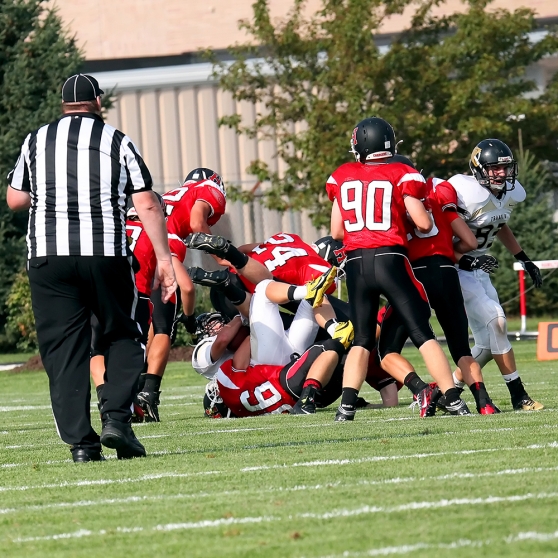5 Common Football Injuries
In the case of a severe blow to the body, it could be a concussion if there is confusion, dizziness, slow movement, nausea, head pain, loss of consciousness or blurry vision after the initial impact. If you suspect a concussion, it’s important to discontinue play and monitor the injured player closely. If the player’s condition has worsened after an hour or two, take him or her to the hospital to assess the situation. In some cases, a concussion can cause a fatal blood clot. If the player cannot wake up, has one larger pupil, continuously vomits, convulses or becomes increasingly confused, call 911 immediately. To help prevent concussions, it is important to ensure good safety practices.
Reviewed by:
Review Date:
October 15, 2015Citation:
Image courtesy of Yobro10 | Dreamstime.com Image courtesy of Seanyu | Dreamstime.com Image courtesy of Pixattitude | Dreamstime.com Image courtesy of Agawa288 | Dreamstime.com Image courtesy of Louis Horch | Dreamstime.com Image courtesy of Andrey Popov | Dreamstime.com Image courtesy of Davesfreelancephotos | Dreamstime.com Image courtesy of Designua | Dreamstime.com Image courtesy of Yobro10 | Dreamstime.com Image courtesy of Alila07 | Dreamstime.com Image courtesy of Richard Thomas | Dreamstime.com Stanford Children's Health, "Sports Injury Statistics" Medline Plus, "Anterior cruciate ligament (ACL) injury CDC, "Heads Up: Concussion in Football" UW Health, "Sports medicine clinic" UCSF Medical Center "MCL Tear" Ortho Info, "Meniscus Tears"
Last Updated:
October 20, 2015
